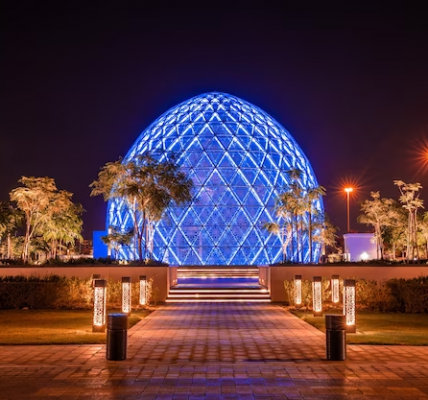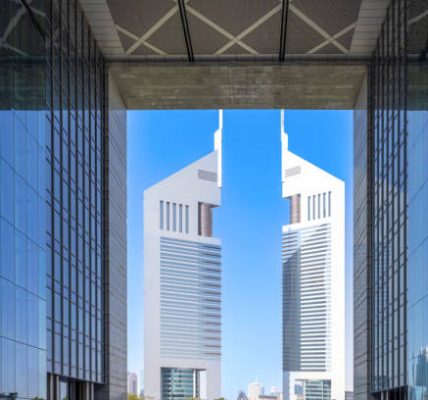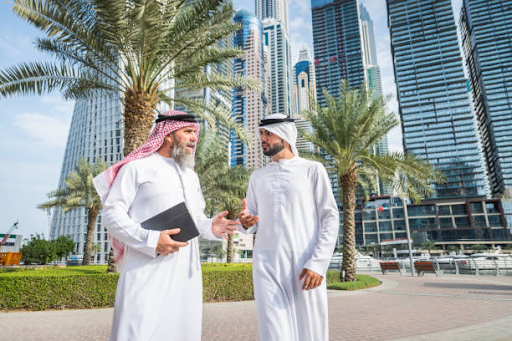Sustainability is a multifaceted and global challenge that requires consolidated efforts across countries, industries, and societies. The United Arab Emirates (UAE), once primarily known for its vast oil reserves, has emerged as a pioneering force in sustainability, showcasing its commitment through innovative strategies and initiatives aimed at not just reducing its environmental footprint but also leading as an example for others. With its year of sustainability UAE in 2023, the country is emphasizing its dedication to sustainable development, underscoring a focus on renewable energy, sustainable urban development, and environmental preservation.
Introduction to the UAE’s Sustainability Agenda
The UAE’s journey towards a more sustainable future is deeply embedded in its national identity. Recognizing that the prosperity fueled by oil is unsustainable in the long run, the UAE has ambitiously integrated sustainability into its long-term planning. The “”Vision 2021″” and the more recent “”Centennial 2071″” plans poignantly embody the UAE’s sustainability vision, ensuring that environmental considerations are woven into the fabric of policymaking, economic development, and social progression.
Its strategic geographic location and natural resource endowment have historically steered the UAE’s economic narrative. However, today, with a transformative national agenda, the nation is redefining success in an era of heightened environmental awareness and responsibility.
Historical Context of the UAE’s Environmental Initiatives
The UAE’s focus on the environment can be traced back to the 1990s. The Federation initially laid down regulations and established organizations tasked with the management and preservation of the nation’s natural resources. Over time, this evolved into a broader understanding that environmental stewardship and economic growth can go hand in hand.
- The establishment of Environment Agency – Abu Dhabi (EAD) in 1996
- The formation of the Federal Environment Agency, which later became the Ministry of Climate Change and Environment
These measures marked the beginnings of the plethora of UAE sustainability initiatives aimed at protecting and nurturing the environment for future generations.

The Green Economy Initiative
In 2012, the UAE launched its “”Green Economy for Sustainable Development”” initiative, marking a significant national commitment to pivot away from oil-dependent economic models. This strategy not only fostered environmental benefits but also economic diversification—a top priority for a nation keen to future-proof its economy.
The Green Economy initiative positions the UAE as a hub for the export of green products and technologies, aiming to strengthen its global competitiveness in this vital sector.
Energy Sector Innovations
One of the most critical components of the UAE’s sustainability strategy lies within its energy sector. The government has resolved to reduce its reliance on oil and to invest in diverse renewable energy sources, in line with its UAE sustainability vision.
Solar Energy Advancements
The UAE’s solar energy projects serve as a testament to its commitment to clean energy. The nation has invested significantly in solar power, launching ambitious projects such as:
- The Mohammed bin Rashid Al Maktoum Solar Park, which aims to reach a capacity of 5,000 MW by 2030.
- Shams 1, one of the largest concentrated solar power plants in the world.
These undertakings not only help reduce the country’s carbon footprint but also solidify the UAE’s position as a leader in renewable energy technology.
Nuclear Energy Developments
In parallel to solar energy, the UAE has also been advancing in nuclear energy through its Peaceful Nuclear Energy Program. This program emphasizes safety, security, and non-proliferation, with the Barakah nuclear power plant as the cornerstone of its sustained environmental commitment.
- Providing up to 25% of the UAE’s electricity needs and reducing carbon emissions.
- Embracing international safety standards and collaborating with global experts.
Environmental Preservation and Conservation Efforts
Supporting the intrinsic value of its unique ecosystems, the UAE has taken major strides in preservation and conservation. These initiatives comprise local projects to protect endangered species as well as national movements to expand green spaces.
Mangrove Reforestation Projects
Mangroves are critical to sustaining coastal ecosystems and combatting climate change. To protect and expand these vital habitats, the UAE has initiated several reforestation projects. Efforts include:
- The planting of over 30 million mangrove seeds using drone technology.
- Community engagement programs encouraging public participation in conservation.
Combatting Desertification
The desert environment of the UAE is challenging but presents an opportunity to demonstrate leadership in combating land degradation. Actions to address this issue include:
- Innovative irrigation techniques to reduce water consumption
- Advanced agricultural practices to ensure soil sustainability
Through these dedicated efforts, the UAE is not only halting desertification but also restoring affected areas, turning them into viable and productive landscapes.

Sustainable Urban Development
The UAE’s commitment to sustainability extends to its urban development, with a focus on building eco-friendly cities designed to accommodate growing populations while minimizing ecological impacts. These urban planning initiatives go hand-in-hand with other UAE sustainability initiatives, showcasing the country’s holistic approach.
Masdar City – A Model for Urban Sustainability
Conceived as a blueprint for future cities, Masdar City in Abu Dhabi signifies innovation in sustainable urban living. Its dedication to sustainability is evident through:
- A fully renewable-powered energy grid.
- An autonomous fleet of electric vehicles for public transportation.
Waste Management and Recycling Initiatives
Proper waste management systems are essential for the functionality of any urban development. In alignment with its commitment to sustainability, the UAE has adopted various waste management and recycling initiatives:
- Zero-waste strategies for major cities.
- The development of state-of-the-art waste-to-energy plants.
This sets the groundwork for understanding the pivotal role of the UAE in global sustainability efforts. From harnessing the power of the sun to substantial strides in managing waste, the nation’s journey toward a greener future is well underway. The following section will delve deeper into the UAE’s approach to sustainability through education, international cooperation, corporate responsibility, and the vision for the future.
Educational Programs and International Cooperation
Education is a powerful tool in the fight for a sustainable future, and the UAE has not overlooked its impact. National curricula now increasingly include topics on environmental awareness and sustainable practices, shaping the consciousness of the younger generation. Higher education institutions in the UAE are also leading by example, with world-class research facilities dedicated to sustainability studies and renewable energy technologies.
The nation’s commitment to education in this arena is complemented by its active role in international cooperation. The UAE frequently hosts and participates in global environmental conferences and summits, fostering dialogue, partnerships, and knowledge sharing on an international scale.
- Hosting the annual World Future Energy Summit, part of Abu Dhabi Sustainability Week.
- The UAE’s proactive involvement in the United Nations’ Sustainable Development Goals (SDGs) and the Paris Agreement.
Through these initiatives, the UAE is showcasing its readiness to take on a leadership role in global sustainability challenges.
Corporate Social Responsibility and the Private Sector
The private sector in the UAE has been an eager participant in the sustainability movement, often going beyond compliance and genuinely incorporating corporate social responsibility (CSR) into their business models. The government has aided this transition by providing incentives for companies that adopt sustainable best practices.
Projects in the realms of waste reduction, carbon footprint minimization, and energy efficiency have become increasingly prevalent among businesses in the UAE. The success stories range from small startups to multinational corporations, all contributing to a collective push towards sustainability:
- The development of green buildings that conform to strict environmental performance criteria.
- The implementation of CSR programs focused on sustainable sourcing and fair trade practices.
The government’s encouragement of private sector involvement has been pivotal in creating a prosperous economy that does not compromise the well-being of future generations.
Future Outlook and Sustainable Goals Post-2030
The post-2030 vision for sustainability in the UAE is not only ambitious but also well within reach, considering the extensive groundwork laid out by the country’s leadership. The vision involves the integration of Artificial Intelligence (AI) and advanced technologies to not just maintain sustainability practices but advance them.
The country’s aims include establishing a more circular economy, advancing sustainable agriculture, and drastically reducing water and energy consumption throughout various sectors. With a vision that extends well beyond the current SDGs timeline, the UAE’s commitment to sustainability is undeniable and enduring.
Challenges and Considerations
The journey towards sustainability is not without its challenges. The UAE must continue to balance rapid economic growth with its environmental responsibilities carefully. As the global sustainability landscape evolves, it is imperative for the UAE to be adaptable in its approaches, adopting new strategies and technologies to meet the changing demands of environmental stewardship.
| Aspect | Description |
|---|---|
| 1 | Resource Scarcity: The UAE faces challenges related to water scarcity and a dependence on desalination for freshwater. |
| 2 | Extreme Climate: The harsh desert climate poses challenges for sustainable agriculture and energy consumption. |
| 3 | Urban Development: Rapid urbanization and infrastructure growth require careful planning to ensure sustainable practices. |
| 4 | Energy Consumption: The UAE’s high energy demand, largely met by fossil fuels, presents challenges for transitioning to renewable energy sources. |
| 5 | Waste Management: Proper waste management is crucial to address the increasing amounts of waste generated in the country. |
| 6 | Biodiversity Conservation: Protecting and preserving biodiversity in the face of rapid development is a key consideration. |
| 7 | Community Engagement: Encouraging public participation and awareness is essential for a successful sustainability journey. |
| 8 | Economic Diversification: Balancing economic diversification with sustainability goals to ensure long-term resilience. |
| 9 | Policy Framework: Establishing and implementing comprehensive sustainability policies to guide initiatives. |
| 10 | Technology Adoption: Embracing and investing in sustainable technologies for various sectors, including transportation and construction. |
Diversifying the economy while maintaining sustainable practices is a critical challenge that the country is actively addressing. Engagement with international partners remains a priority to overcome these hurdles and to ensure that the UAE continues to lead in sustainability on the world stage.

In a nutshell
The UAE’s transformative approach to sustainability is an example of what can be achieved through foresight, investment, and global cooperation. Its transition from an oil-dependent nation to a beacon of sustainability showcases its ability to adapt and lead in an era of environmental consciousness. The myriad of efforts across different domains—from the energy sector’s shift towards renewables to the private sector’s embrace of green practices—signals a future where sustainability is no longer an option but a necessity. The UAE stands as a testament to the power of vision and dedication in forging a sustainable future not just for itself, but for the global community at large.
FAQs
What is the purpose of the year of sustainability UAE?
The year of sustainability UAE is designed to accelerate the country’s sustainability initiatives, emphasizing the importance of environmental conservation and sustainable development through various programs and activities throughout the nation.
How do UAE sustainability initiatives impact the global community?
UAE sustainability initiatives contribute to global sustainability efforts by providing innovative models for renewable energy, sustainable urban development, and international cooperation, thereby influencing and inspiring other nations to follow suit.
How has the UAE incorporated sustainability into its education system?
The UAE has integrated sustainability into its national curricula, encouraging environmental awareness and sustainable practices among students. Universities in the UAE are also at the forefront of sustainability research, offering programs and degrees focused on environmental studies.
What role does the private sector play in the UAE sustainability vision?
The private sector in the UAE plays a significant role by adopting sustainable business practices, reducing carbon footprints, and participating in corporate social responsibility initiatives that align with the country’s sustainability goals.
What challenges does the UAE face in achieving its sustainability goals?
Balancing economic diversification with environmental preservation, staying adaptable to the evolving global sustainability demands, and ensuring the continuous engagement of all sectors of society are some of the challenges the UAE faces as it strives to achieve and maintain its sustainability ambitions.




